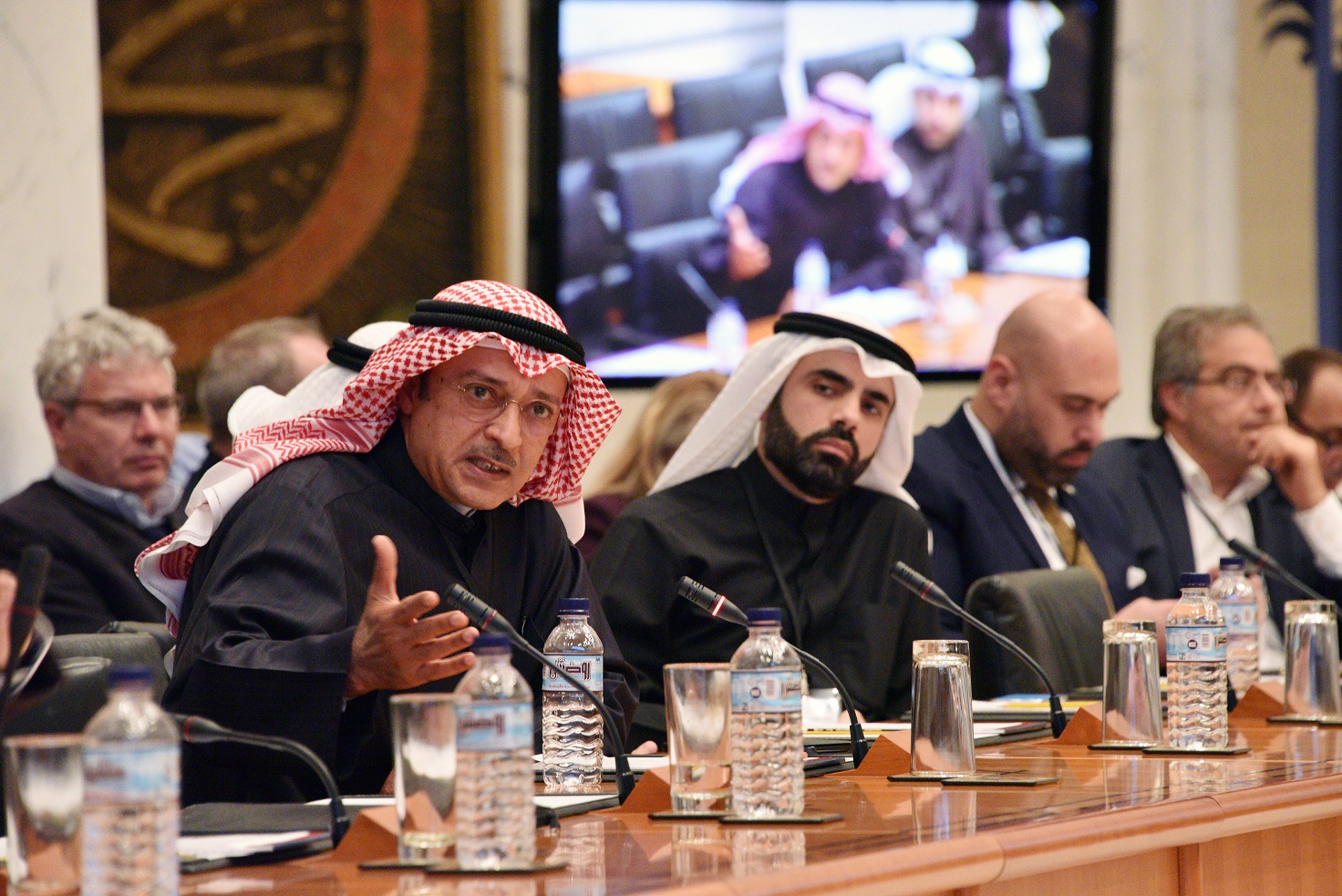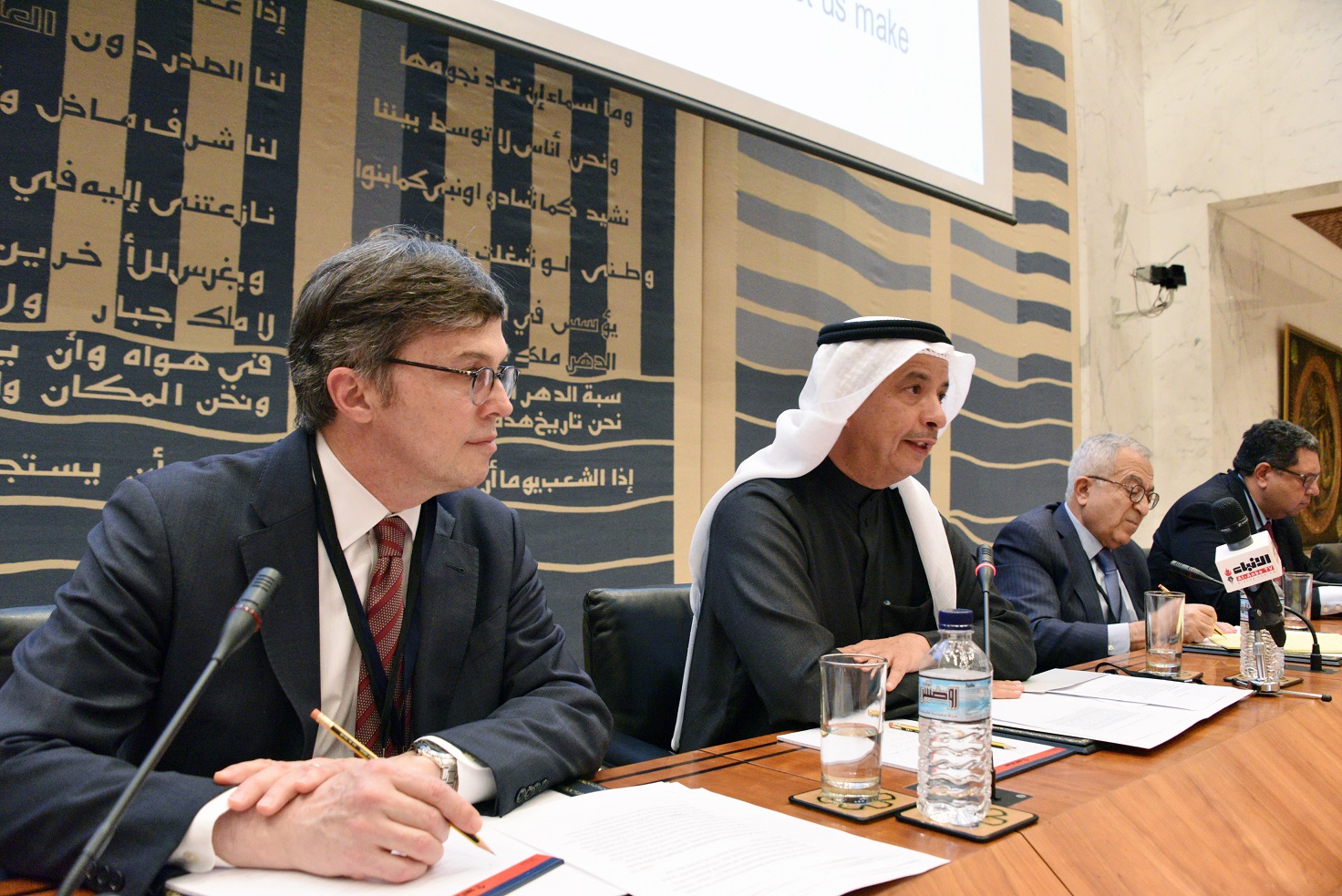Seminars, Webinars, & High-level Events
High-level Symposium on Good Governance and Transparency in the Arab World
February 13th, 2019



The IMF Middle East Center for Economics and Finance (CEF) in Kuwait, jointly with the Arab Fund for Economic and Social Development (AFESD), held a high-level symposium on “Good Governance and Transparency in the Arab World” on Wednesday, February 13, 2019.
The IMF Middle East Center for Economics and Finance (CEF) in Kuwait, jointly with the Arab Fund for Economic and Social Development (AFESD), held a high-level symposium on “Good Governance and Transparency in the Arab World” on Wednesday, February 13, 2019. The event was hosted at the AFESD’s Headquarters. The panel discussion was chaired and moderated by His Excellency Dr. Yousef Al-Ebraheem, Economic Advisor at Al-Diwan Al-Amiri. It included Dr. Louis Marc Ducharme, Chief Statistician and Data Officer, and Director of the IMF’s Statistics Department, as the keynote speaker; Dr. Salam Fayyad, Distinguished Scholar and Lecturer at Princeton University and former Prime Minister of Palestine; and Dr. Ziad Bahaa-Eldin, Founder and Managing Partner at Thebes Consultancy and former Deputy Prime Minister of Egypt.
His Excellency Dr. Yousef Al-Ebraheem indicated that the symposium aimed at stimulating an open debate on the evolving economic challenges faced by policymakers in Kuwait and the wider Arab community. He discussed the importance of good economic governance and transparency for evidence-based policy making and overviewed key policies that are needed in the Arab world for closer economic cooperation, and highlighted the steps required to strengthen public sector institutions especially in conflict-affected countries.
Dr. Ducharme’s keynote address focused on the importance of transparent, high quality, and timely data for good governance. He highlighted the crucial nature of data quality for effective policy making, he outlined how the IMF and country authorities can work together to improve quality and availability of economic data and thereby strengthen economic governance in the region. Dr. Ducharme concluded by highlighting the pressing nature of this endeavor, at a time when technological change can help statisticians and policy-makers reap substantial benefits from increased transparency. Dr. Ducharme highlighted the central role of economic data and statistics as a public good, whose quality has enormous bearing on many aspects of social life. The role as effective public good requires that statistics can be trusted by everyone as facts. Agreeing on statistical evidence is an essential first step to initiate any proper policy discussion. Creating trust in statistics is somewhat simple but it takes commitment and requires transparency, broad availability of data to the public, a robust governing framework, and time to establish track record. Dr. Ducharme noted that the IMF’s capacity development work and dialogue with the authorities has supported notable improvement in statistical quality in the region, with real time beneficial impact on policy making. On the institutional front, the IMF has supported the creation of the Arab-Stat initiative and the GCC-Stat, two initiatives that support the above objectives in the region. Furthermore, substantial progress has been made in the region towards greater availability of statistics and effective dissemination in the context of the IMF’s data standards initiative. Finally, Dr. Ducharme suggested that the ongoing data revolution creates opportunities for policy-makers to reap further benefits from transparency. The use of cloud-based dissemination will help countries join the “global data commons,” making countries’ economic data seamlessly and immediately available to all third parties, the public, investors, academics in one global data repository. This is a central objective of the IMF’s new Data and Statistics Strategy. Thanks to the SDMX machine-to-machine data exchange protocol, economic data will not only be published frequently, but also be made available to a global audience permitted by cloud-based dissemination techniques. Dr. Ducharme reiterated the IMF’s intention to provide strong support to regional players in this endeavor.
Following Dr. Ducharme’s presentation, Dr. Salam Fayyad and Dr. Ziad Bahaa-Eldin presented a complementary analysis of the reforms needed to achieve good governance in Arab countries, bringing to the fore lessons from several countries and regions, including an assessment of Egyptian, Palestinian as well as global experiences.
Watch the Symposium:
Please follow the below links to watch full recordings of the symposium:
Watch Part One: Symposium Part 1
Watch Part Two: Symposium Part 2
Watch Part Three: Symposium Part 3
Watch Part Four: Symposium Part 4
